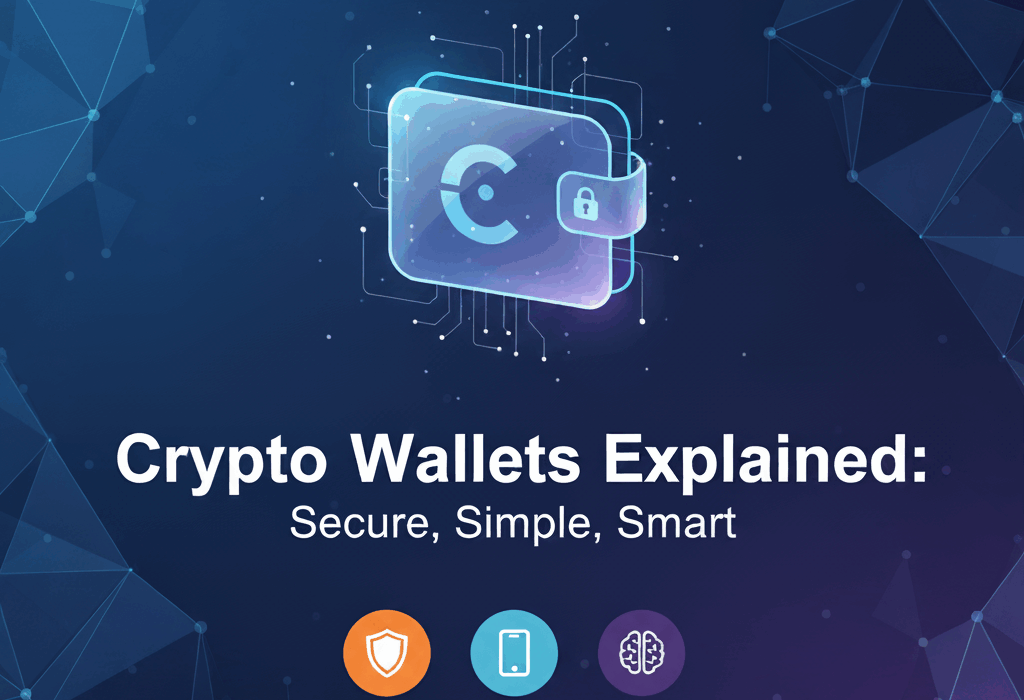A crypto wallet is a digital app that lets you store, send, and get cryptocurrency. It doesn’t hold actual coins but keeps your digital keys safe. These keys are like a password that proves you own your crypto on the internet.
Getting into crypto can be confusing. You might wonder where you keep your digital money. That’s where a crypto wallet comes in. Think of it as your personal bank account for crypto. This guide will explain everything in simple words.
Understanding the Basics — What Is a Crypto Wallet?
Let’s make it super simple.
A crypto wallet is like a special keychain for the internet.
It holds two main keys:
- Public Key: Like your email address. You share it to get crypto.
- Private Key: Like your email password. You NEVER share it.
Where you keep your crypto matters:
- On an exchange (like btzo exchange): The company holds your keys. It’s easy but they’re in control.
- In your own wallet: You hold your keys. You’re in full control.
Remember: “Not your keys, not your crypto.”
How Does a Crypto Wallet Work?
Let’s see what happens when you send crypto to a friend.
Step 1: You Start the Send
- Open your wallet (like the btzo app)
- Type your friend’s wallet address
- Enter the amount to send
Step 2: Your Wallet Signs It
- Your wallet uses your private key
- It makes a digital signature
- This proves you own the crypto
Step 3: It Goes to the Network
- The transaction goes to the blockchain
- Computers check your digital signature
- They make sure it’s really you
Step 4: It Gets Added Forever
- The transaction joins others in a block
- This block gets added to the blockchain
- Everyone’s record updates
Step 5: Your Friend Gets It
- The crypto appears in their wallet
- The transaction is done
- It can’t be reversed
Types of Crypto Wallets Explained
There are two main types. Think of them like your everyday wallet vs a bank vault.
Hot Wallets (Online)
These are connected to the internet.
The Good:
- Easy to use
- Great for daily trading
- Free and fast
- Good for small amounts
The Bad:
- Can be hacked online
- Less secure
- Depends on your phone/computer safety
Examples: Mobile apps like the btzo wallet, web wallets.
Cold Wallets (Offline)
These are not connected to the internet.
The Good:
- Very secure
- Can’t be hacked online
- Perfect for large amounts
- You control everything
The Bad:
- Not as convenient
- Costs money to buy
- Can be lost or damaged
Examples: Hardware wallets (like USB devices), paper wallets.
Setting Up and Using a Crypto Wallet on BTZO
Using a wallet on BTZO is easy. Here’s how it works:
- When you join btzo, you get a wallet automatically
- No extra setup needed
- You can start trading right away
To get crypto:
Share your public address from your btzo wallet
To send crypto:
Enter the receiver’s address and amount
Click send
The btzo app makes it simple. You don’t need to be tech expert.
How to Keep Your Crypto Wallet Secure
Keeping your crypto safe is super important. Once it’s gone, you can’t get it back.
Simple Safety Rules:
- Use strong passwords
- Turn on two-factor authentication (2FA)
- Never tell anyone your private keys
- Watch out for fake emails and websites
Extra Protection:
- Use a cold wallet for large amounts
- Write down your seed words and keep them safe
- Use a separate device for crypto if you can
How BTZO Helps:
- They use strong encryption
- Most funds are in cold storage
- They watch for strange activity
But remember: you still need to be careful with your own account.
Final Word
Knowing your crypto wallet is step one to being smart with crypto. Spend with hot wallets and invest in cold wallets. Places like btzo make it easy, but your security is on you too. Keep learning and trade safe!


